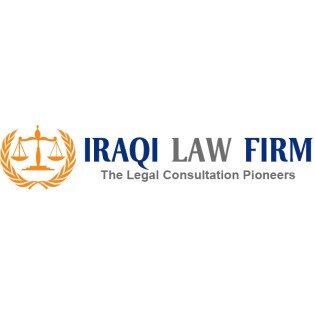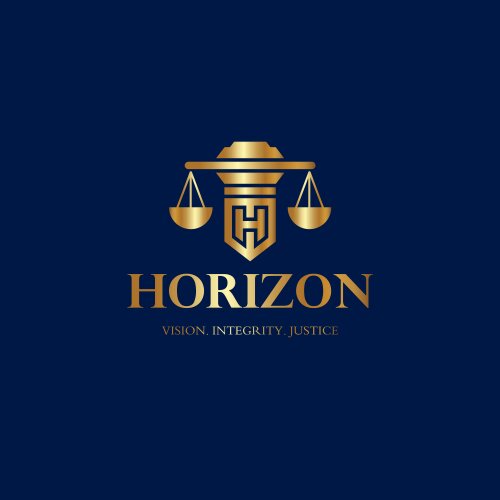Best Energy Regulatory Law Lawyers in Iraq
Share your needs with us, get contacted by law firms.
Free. Takes 2 min.
Or refine your search by selecting a city:
List of the best lawyers in Iraq
About Energy Regulatory Law in Iraq
Energy Regulatory Law in Iraq governs the exploration, production, distribution, and sale of energy resources, including oil, natural gas, and electricity. Given Iraq's status as one of the world’s leading oil producers, energy law is central to its economic stability and development. These laws ensure the efficient, fair, and sustainable use of Iraq's rich energy resources, regulate foreign and local investment, manage licensing processes, oversee environmental protection, and enforce safety standards within the energy sector.
Why You May Need a Lawyer
Individuals and businesses may require a lawyer specializing in Energy Regulatory Law for several reasons. Common situations include:
- Negotiating and drafting contracts for exploration, production, or supply agreements
- Obtaining licenses, permits, or approvals from regulatory authorities
- Navigating complex compliance issues with Iraq’s oil and gas laws
- Handling disputes between contractors, government bodies, or local communities
- Advising on environmental and social obligations related to energy projects
- Managing joint ventures or foreign investment arrangements in Iraq’s energy sector
- Addressing labor, land use, or tax matters linked to energy operations
- Pursuing administrative appeals or litigation regarding regulatory decisions
- Understanding changes in legislation that impact ongoing or planned projects
- Providing legal due diligence for mergers, acquisitions, or divestitures in energy companies
Local Laws Overview
Energy Regulatory Law in Iraq is shaped by several key legal frameworks:
- The Iraqi Constitution of 2005: Recognizes oil and gas as the property of all people of Iraq and provides guidance on managing these resources for the public good.
- Ministry of Oil Regulations: The Ministry of Oil and related state companies oversee licensing and regulatory compliance for exploration, extraction, and export of hydrocarbons.
- Oil and Gas Law (draft): While a comprehensive national oil and gas law is still in draft, various existing statutes and administrative orders guide sector operations.
- Foreign Investment Law: Encourages international investment while specifying procedures and protections applicable to foreign entities operating in the energy sector.
- Kurdistan Region Oil and Gas Law (2007): The semi-autonomous Kurdistan Region has its own legal framework, which governs regional energy activities and sometimes differs from national laws.
- Environmental Regulations: Imposes obligations relating to pollution control, waste management, and environmental protection for energy projects.
- Contract Models: Production Sharing Contracts (PSCs), Technical Service Contracts (TSCs), and Joint Venture Agreements form the legal basis for private participation, especially for foreign companies.
Legal processes can involve interaction with several ministries, local authorities, and may require a clear understanding of both Iraqi law and international best practices.
Frequently Asked Questions
What authority regulates the energy sector in Iraq?
The Ministry of Oil is the primary regulator for oil and gas, while the Ministry of Electricity oversees the power sector. In the Kurdistan Region, the Ministry of Natural Resources has regulatory authority.
Can foreign companies invest in the Iraqi energy sector?
Yes, foreign investment is permitted and encouraged, subject to regulatory approvals and adherence to Iraq’s relevant laws and contract terms.
What types of contracts are commonly used for oil and gas projects?
Iraq typically uses Technical Service Contracts with foreign companies, while the Kurdistan Region often employs Production Sharing Contracts.
How are environmental concerns addressed?
All energy projects must comply with environmental protection laws, including conducting environmental impact assessments and implementing measures to mitigate pollution.
How does Iraq distribute oil and gas revenues?
Revenue distribution is a complex process involving federal and regional authorities. The Constitution mandates that revenues be managed for the benefit of all Iraqis, but implementation and disputes occasionally arise.
Do local communities have a say in energy projects?
Local consultation is often required, especially for large-scale projects. Social license and community agreements may be necessary to proceed efficiently.
What legal challenges do investors face in Iraq?
Common challenges include navigating regulatory uncertainty, enforcing contracts, dealing with security risks, and managing disputes between federal and regional authorities.
Are there distinct legal regimes in the Kurdistan Region?
Yes, the Kurdistan Regional Government has its own oil and gas law and separate regulatory framework, which can differ significantly from federal legislation.
How can disputes in the energy sector be resolved?
Disputes can be settled through negotiation, arbitration (often under international rules), or litigation in Iraqi courts, depending on the contract terms.
Do I need a local partner to operate in Iraq's energy sector?
While not always mandatory, partnering with a local company or agent is advisable to navigate regulatory requirements and local business practices successfully.
Additional Resources
Consider consulting the following resources and organizations for up-to-date information on Energy Regulatory Law in Iraq:
- Ministry of Oil, Republic of Iraq
- Ministry of Electricity, Republic of Iraq
- Ministry of Natural Resources, Kurdistan Regional Government
- National Investment Commission
- Iraqi Bar Association
- Iraqi Environmental Protection and Improvement Agency
- International organizations such as the World Bank or UNDP, which often publish sector reports and legal analysis
- Reputable law firms specializing in Iraqi energy law
Next Steps
If you need legal assistance related to Energy Regulatory Law in Iraq, consider these steps:
- Identify your specific legal need, such as contract negotiation, licensing, regulatory compliance, or dispute resolution.
- Gather any relevant documentation, contracts, correspondence, or decisions from regulatory bodies.
- Consult with a qualified lawyer experienced in Iraqi energy regulatory matters. Preferably, choose one with local expertise and knowledge of the specific region where your issue arises.
- Verify the lawyer's credentials through the Iraqi Bar Association or recommendations from industry bodies.
- Discuss your concerns and goals transparently to receive tailored legal advice.
- Stay informed about legal changes or sector developments that might affect your situation.
Effective legal counsel can help you navigate the complexities of Iraq’s energy sector, minimize risks, and protect your interests in this vital and evolving industry.
Lawzana helps you find the best lawyers and law firms in Iraq through a curated and pre-screened list of qualified legal professionals. Our platform offers rankings and detailed profiles of attorneys and law firms, allowing you to compare based on practice areas, including Energy Regulatory Law, experience, and client feedback.
Each profile includes a description of the firm's areas of practice, client reviews, team members and partners, year of establishment, spoken languages, office locations, contact information, social media presence, and any published articles or resources. Most firms on our platform speak English and are experienced in both local and international legal matters.
Get a quote from top-rated law firms in Iraq — quickly, securely, and without unnecessary hassle.
Disclaimer:
The information provided on this page is for general informational purposes only and does not constitute legal advice. While we strive to ensure the accuracy and relevance of the content, legal information may change over time, and interpretations of the law can vary. You should always consult with a qualified legal professional for advice specific to your situation.
We disclaim all liability for actions taken or not taken based on the content of this page. If you believe any information is incorrect or outdated, please contact us, and we will review and update it where appropriate.
Browse energy regulatory law law firms by city in Iraq
Refine your search by selecting a city.

















